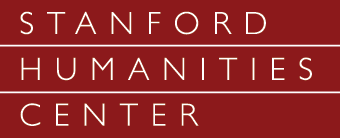International Visitors: 2014-2015

Boğaziçi University, Istanbul, Turkey
FSI-Humanities Center International Visitor 2014-2015
Aron Rodrigue International Visitor 2014-2015
October 2014
Yeşim Arat (Yale College, BA ’78, Princeton University PhD ’83) is a professor in the Department of Political Science and International Relations at Boğaziçi University, Istanbul, Turkey. She is the author of The Patriarchal Paradox: Women Politicians in Turkey (Fairleigh Dickinson University Press, 1989), Rethinking Islam and Liberal Democracy: Islamist Women in Turkish Politics (SUNY Press, 2005), Violence Against Women in Turkey (with Ayse Gul Altinay-Punto, 2009-Turkish version, 2008 Pen Duygu Asena Award) and numerous articles on women as well as Turkish politics. Arat was the Provost of her university between 2008-2012 and is a member of the Science Academy, Turkey. She is currently working on a book on post 1980 politics of Turkey. Professor Arat was nominated by the Mediterranean Studies Forum.

Uppsala University, Sweden
Humanities Center International Visitor 2014-2015
Ruth Garland Bowes International Visitor 2014-15
Spring 2015
Dag Blanck is the director of the Swedish Institute for North American Studies at Uppsala University, Sweden, and the academic director of the Swenson Swedish Immigration Research Center at Augustana College in Illinois. Trained as an historian in both the U.S. and Sweden (PhD, Uppsala) his research interests have focused on American immigration history, ethnicity, and on the migration of individuals and ideas across the Atlantic in the 19th and 20th centuries. He is currently writing a book on the social and cultural aspects of different types of intersections between Sweden and the U.S. over the past 200 years. Blanck’s recent publications include "A Mixture of People with Different Roots: Swedish Immigrants in the American Ethno-Racial Hierarchies,” in the Journal of American Ethnic History, 33, (Spring 2014); “Travelling Scholars. Swedish Academic Travelers across the Atlantic in the 20th Century” in Klaus Petersen et al., American Foundations and the European Welfare States (Odense, 2013) and Norwegians and Swedes in the United States - Friends and Neighbors (St. Paul, 2012).

National Chiao Tung University, Taiwan
FSI-Humanities Center International Visitor 2014-2015
Spring 2015
Pin–Chia Feng is Distinguished Professor of the Department of Foreign Languages and Literatures at National Chiao Tung University in Taiwan and Research Fellow of the Institute of European and American Studies, Academia Sinica (joint appointment). She is also on her second term as President of the Association of English and American Literature. Feng was NCTU’s Provost of Academic Affairs, Chair of NCTU’s Department of Foreign Languages and Literatures, President of the Comparative Literature Association of ROC (2005-2008), President of the Association of English and American Literature (2009-2011), and a recipient of the 2007, 2010, and 2013 Outstanding Research Award of Taiwan’s National Science Council. Her monograph, Diasporic Representations: Reading Chinese American Women’s Fiction, was awarded Academia Sinica’s Scholarly Monograph Award in the Humanities and Social Sciences (2012). Feng received her PhD in English from the University of Wisconsin-Madison (1994). She writes on issues of gender, race, and representation in films as well as in Asian American, African American and Afro-Caribbean literatures. Pin-Chia Feng was nominated by the Department of English.

University of Leeds, UK
Humanities Center International Visitor 2014-2015
Bliss Carnochan International Visitor 2014-2015
Winter 2015
Catherine E. Karkov holds the Chair in Art History at the University of Leeds. Her research focuses on the art and archaeology of Anglo-Saxon England, concentrating especially on questions of gender, materiality, the postcolonial, and the relationship between text or voice and image or object. Her publications include: The Art of Anglo-Saxon England (Boydell, 2011) and Text and Picture in Anglo-Saxon England: Narrative Strategies in the Junius 11 Manuscript (Cambridge, 2001), along with the co-edited volumes Conversion and Colonization in Anglo-Saxon England (MRTS, 2006) and Theorizing Anglo-Saxon Stone Sculpture (Morgantown, WV, 2003). She is currently completing work on an edited volume entitled Postcolonising the Medieval Image. She is also working on two additional research projects: Reading the Mother Tongue, which explores the intersection of female agency, place and language in Anglo-Saxon England, and Written in Stone, a study of the use of stone as a postcolonial statement in the north of England ca. 400–1100. She is a fellow of the Society of Antiquaries and the English Association, and sits on numerous editorial and advisory boards.

University of Heidelberg, Germany
FSI-Humanities Center International Visitor 2014-2015
January 2015
Barbara Mittler holds a Chair in Chinese Studies at the Institute of Chinese Studies, University of Heidelberg and is Director of the Cluster of Excellence at the University of Heidelberg “Asia and Europe in a Global Context.” She began her studies of Sinology at the University of Oxford (MA Oxon 1990), and has spent research periods in Taiwan, the People’s Republic of China, Hong Kong and at Harvard University. Her PhD (1994) and her habilitation (post-doctoral thesis, 1998) are both from Heidelberg. In 2009 she won the Henry Allen Moe Prize in the Humanities, American Philosophical Society, and most recently, in 2013, her book-length study of the Chinese Cultural Revolution won the Fairbank Prize by the American Historical Association. Her research focuses on cultural production in (greater) China covering a wide range of topics from music to visual and historical print media in China's long modernity. She has published numerous research papers and three book-length studies: Dangerous Tunes: The Politics of Chinese Music in Hong Kong, Taiwan and the People's Republic of China since 1949 (Harrassowitz, 1997); A Newspaper for China? Power, Identity and Change in China’s News-Media, 1872-1912 (Harvard University Press, 2004); and A Continuous Revolution: Making Sense of Cultural Revolution Culture (Harvard University Press, 2012). Currently, she is finishing another book-length study Portrait(s) of a Trope: Making New Women and New Men in Chinese Women’s Magazines, 1898-2008.Professor Mittler was nominated by the Department of East Asian Languages and Cultures.

Lund University, Sweden
FSI-Humanities Center International Visitor 2014-2015
October 2014

